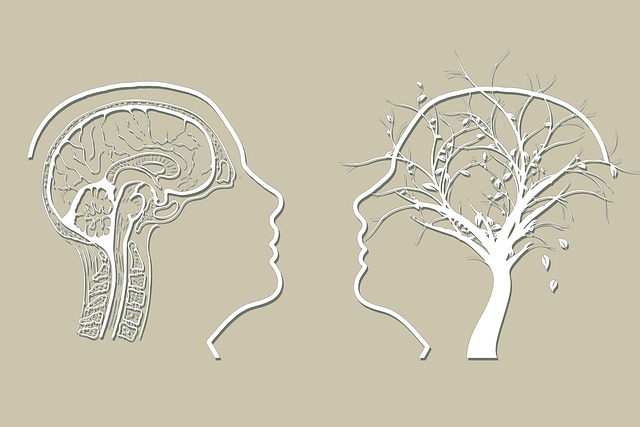Mental health policies are crucial in supporting young children with Autism Spectrum Disorder (ASD), addressing therapy gaps, and improving outcomes. Advocacy groups raise ASD awareness, push for policy changes, and integrate holistic care like Mental Wellness Coaching Programs. Strategies include evidence-based practices, stress management, and reducing stigma to enhance adaptive skills and self-esteem. Case studies show successful initiatives like expanded insurance coverage for ABA therapy and mental wellness podcasts, leading to better coping, anxiety relief, and community engagement for children with ASD.
Mental health policy analysis and advocacy play a pivotal role in shaping support systems for young children with Autism Spectrum Disorder (ASD). This article delves into the intricate relationship between mental health policies and their profound impact on access to therapy for ASD. We critically examine existing gaps in care, explore effective advocacy strategies, and present inspiring case studies of policy changes that have enhanced therapeutic opportunities. By understanding these dynamics, we can drive meaningful improvements in mental health services tailored to young children with ASD.
- Understanding Mental Health Policies and Their Impact on Young Children with Autism Spectrum Disorder (ASD)
- Gaps in Current Therapy Access for ASD: A Critical Analysis
- Effective Advocacy Strategies to Improve Mental Health Services for Young Children with ASD
- Case Studies: Successful Policy Changes and Their Benefits for ASD Therapy
Understanding Mental Health Policies and Their Impact on Young Children with Autism Spectrum Disorder (ASD)

Mental health policies play a pivotal role in shaping the support systems and resources available for young children with Autism Spectrum Disorder (ASD). These policies dictate access to crucial therapies, such as behavioral interventions and speech therapy, which are essential for their mental wellness and overall development. Effective policies ensure that families have the necessary tools and knowledge to implement self-care routines, fostering better mental health outcomes for these children.
Community outreach program implementation under these policies can significantly enhance support networks. By reaching out to communities, schools, and healthcare providers, advocacy groups can raise awareness about ASD and the unique therapy needs of young children with this disorder. This collective effort not only improves access to specialized care but also promotes an inclusive environment where mental wellness is prioritized and supported on a broader scale.
Gaps in Current Therapy Access for ASD: A Critical Analysis

The current landscape of therapy for young children with Autism Spectrum Disorder (ASD) is fraught with significant gaps and challenges. Despite growing awareness and advancements in understanding ASD, access to effective and specialized treatments remains a critical issue. Many families struggle to find comprehensive services that cater to the unique needs of their autistic children, often facing barriers such as limited availability, high costs, and geographic constraints. This inequality in therapy access exacerbates existing disparities in care, particularly affecting marginalized communities who may have fewer resources and support systems.
The dearth of evidence-based interventions tailored for young children with ASD is a notable concern. While various therapeutic approaches like Applied Behavior Analysis (ABA), speech therapy, and occupational therapy are widely used, their implementation varies widely across regions. Furthermore, the focus tends to be more on managing symptoms rather than addressing the underlying causes and promoting overall well-being. Integrating stress management techniques and mental illness stigma reduction efforts into early interventions could foster better adaptive skills and enhance self-esteem for children with ASD, thereby improving their quality of life and long-term outcomes.
Effective Advocacy Strategies to Improve Mental Health Services for Young Children with ASD

Advocating for improved mental health services for young children with Autism Spectrum Disorder (ASD) requires a multi-faceted approach. Effective strategies include raising awareness among policymakers and educators about the unique mental wellness needs of this population. This can involve sharing research highlighting the increased risk of anxiety, depression, and other mental health challenges in children with ASD, and advocating for early intervention and access to specialized therapy.
One promising avenue is pushing for the development and integration of Mental Wellness Coaching Programs tailored for young children with ASD. These programs can offer individualized support, incorporating strategies like Social Skills Training to enhance communication and interaction, as well as Mood Management techniques to help regulate emotions. By integrating these evidence-based practices into existing services, we can ensure that young children with ASD receive holistic care that addresses both their cognitive and emotional needs.
Case Studies: Successful Policy Changes and Their Benefits for ASD Therapy

Case studies demonstrate that policy changes aimed at improving access to therapy for young children with Autism Spectrum Disorder (ASD) have led to significant benefits. One notable example involves expanded insurance coverage for evidence-based interventions like Applied Behavior Analysis (ABA), which has shown remarkable results in enhancing coping skills development and anxiety relief among ASD patients. These policies not only increase the availability of high-quality therapy but also foster mental wellness by enabling earlier intervention.
Additionally, successful advocacy efforts have led to the integration of holistic approaches into standard care protocols. Mental wellness podcast series production, for instance, has been utilized as a creative tool to reach families and provide them with valuable information on managing ASD symptoms. Such initiatives promote community engagement and ensure that parents and caregivers are equipped with effective coping strategies, ultimately contributing to improved mental health outcomes for children on the spectrum.
Mental health policy analysis reveals significant gaps in access to therapy for young children with Autism Spectrum Disorder (ASD), highlighting the urgent need for advocacy and change. By understanding the impact of current policies, identifying critical access issues, and employing effective advocacy strategies, we can drive meaningful improvements in mental health services. The case studies presented demonstrate that targeted policy changes can significantly benefit ASD therapy, ensuring a brighter future for these children and their families. It is imperative that we continue to push for evidence-based solutions, ensuring equal access to quality care for all young individuals on the autism spectrum.














